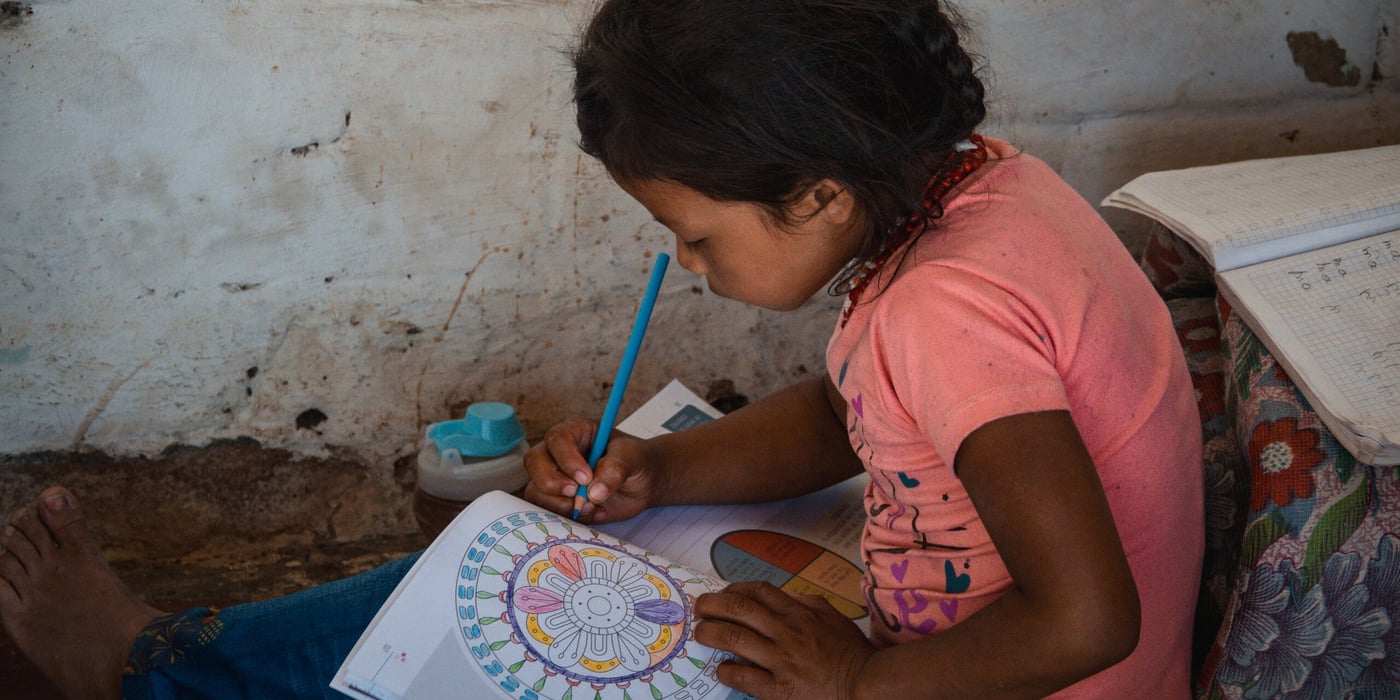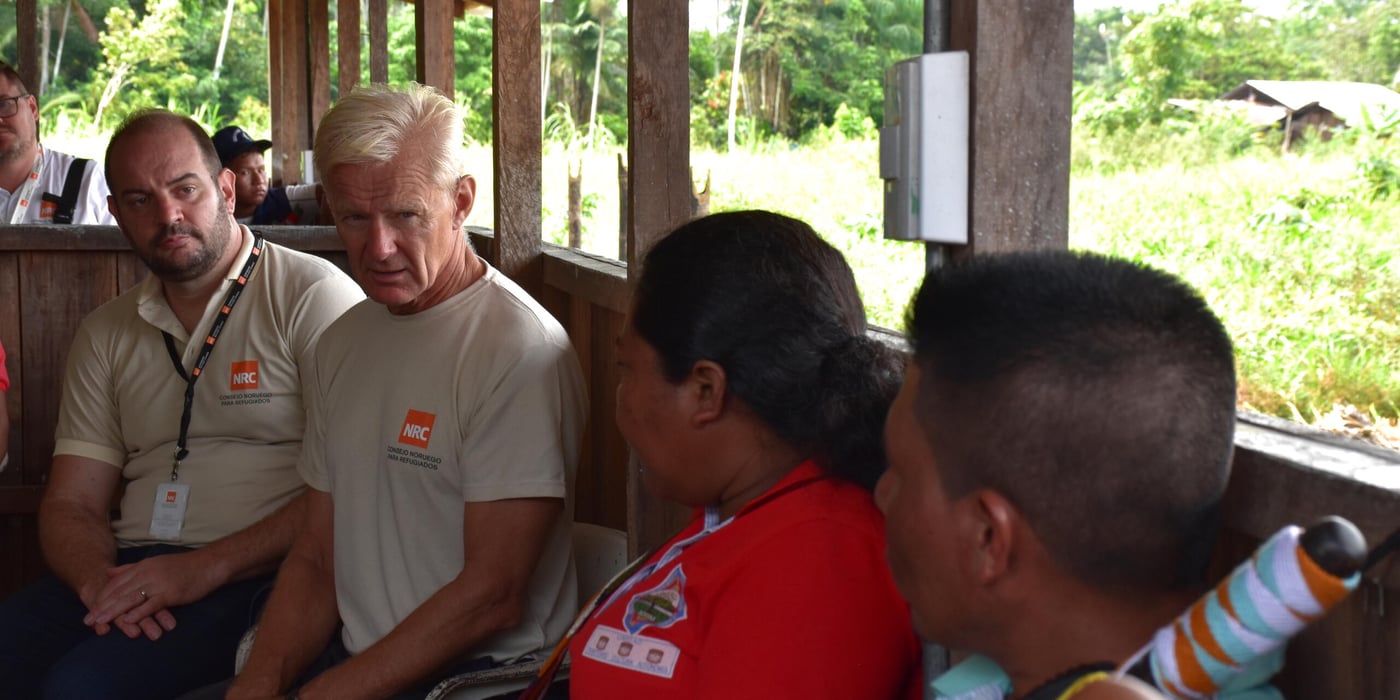
More than 50 years of civil war have cost over 220,000 people their lives and forced more than seven million people to flee their homes. Four years have now passed since the Colombian government and the country’s biggest guerrilla group, FARC, started peace negotiations and on Monday 26 September the parties signed the peace agreement.
Yes or no
Before the agreement is final, the Colombian people will also have their say. On Sunday 2 October, they will vote “yes” or “no” to the agreement that is supposed to bring a long awaited peace to the country. Is there a chance the people will say “no”?
“The peace process has been ongoing for more than four years, the paragraphs have been thoroughly discussed and civil society has been involved all the way through. In addition, everyone has their eyes on Colombia. All of this gives the agreement greater legitimacy in the population, says Senior Adviser in the Norwegian Refugee Council (NRC), Richard Skretteberg, who believes the referendum will result in a “yes” to the peace agreement.
He stresses, however, that there are groups in Colombian society that are sceptical to the agreement, such as those on the right of the political spectrum, led by previous president Uribe. Also, there are groups that have profited from the war through criminal activities and by seizing land.
“Parts of civil society have also reacted to the part of the agreement dealing with penalties for people who have committed serious war crimes, as they consider the penalties to be too low. Many will however say that these are necessary compromises and will vote “yes”, says Skretteberg.
A new era for Colombia
Norway has played an important role as facilitator in the peace talks and Dag Nylander at the Norwegian Ministry of Foreign Affairs has been head of the Norwegian delegation since the official negotiations began in the autumn of 2012.
“I think that the survivors of the conflict are very supportive of the peace agreement. Colombians have high expectations for what a peace agreement, when implemented, will mean for them. However, the polarisation is still evident only days before the referendum. A “yes” will mean that Colombia can take the step into a new era. The agreement will bring an end to more than 50 years of conflict with FARC and it is a good starting point from which to build a final peace and a fairer Colombia,” says Nylander.
The agreement will bring an end to more than 50 years of conflict with FARC and it is a starting point from which to build a final peace and a fairer Colombia.Dag Nylander, peace mediator in Colombia
The road to peace
The peace agreement contains several key elements to help secure peace and reconciliation. These include providing for economic and social development in rural areas and distribution of land; political participation for FARC and other rebel groups; actions to be taken in the fight against drug production and trade; and compensation for victims of war. A final element concerns the demobilisation of FARC and the overall implementation of the deal.
“While we congratulate Colombia on this important step, we are also reminded that there is a long way to go. It is time to walk the talk. The affected population need to feel the immediate positive impacts. A failure to do so, on the other hand, would threaten the comprehensive progress already made,” said NRC’s country director in Colombia, Christian Visnes.
Peace demands more than a signature
A lasting peace will, however, demand more than the parties’ signature. Displaced people must have their land back, the security situation must improve and local authorities must be given resources to protect and find lasting solutions for those who are displaced and other vulnerable groups.
“A peace agreement with FARC will result in a less violent Colombian society, but it is obvious that you do not go from war one day to peace the next after 52 years of conflict,” says Skretteberg.
The reintegration of FARC into Colombian society is important. If this does not succeed, there is a risk they will be recruited to criminal groups or to ELN, the second largest rebel group in the country, which has not yet signed a peace agreement.
“There are still several paramilitary groups which continue to commit crimes and the government has a big responsibility to dissolve these groups, says Skretteberg.
It is about the land
The question many are asking, is whether a final peace agreement will make it possible for those displaced to return to their homes and if the humanitarian problems will eventually be solved.
“The core of the conflict is the fight about land, says Skretteberg, so the work to create lasting solutions for refugees and internally displaced Colombians through return of land is extremely important.
The work to create lasting solutions for refugees and internally displaced Colombians is extremely important. This goes straight to the core of the conflict, which is the fight about land.Richard Skretteberg, seniorrådgiver i Flyktninghjelpen
International support
For the peace process to succeed, the UN, the EU and the governments of many countries must support it, both financially and politically. To be able to implement the points in the agreement, the Colombian government will have to spend resources equivalent to the country’s annual gross national product.
“The international society needs to engage positively on the financial side. There is a need for significant resources in order to give back land to several million people, while at the same time boosting agricultural production to reduce poverty among the survivors of the conflict,” says Skretteberg.
Political support to the peace project will be decisive to avoid compromising the peace.
“Even if the people vote “yes”, building peace will take time. If Colombia fails to reintegrate FARC members into society, if threats from paramilitary groups increase or if the government does not manage to make an agreement with ELN, the peace process will be at risk. This is why the international society has to contribute to isolating those political forces attempting to sabotage the peace process,” says Skretteberg.
NRC in Colombia
The Norwegian Refugee Council (NRC) has assisted Colombians displaced by conflict since 1991. There are still enormous humanitarian needs among millions of displaced people in the country.
NRC urges donors not to hold back support during this fragile phase. The work of building peace needs to start immediately. Its success will depend not only on the commitment of the negotiating parties, but also on support from the international community. As an international organisation, our commitment will continue to seek to complement and support state efforts.



